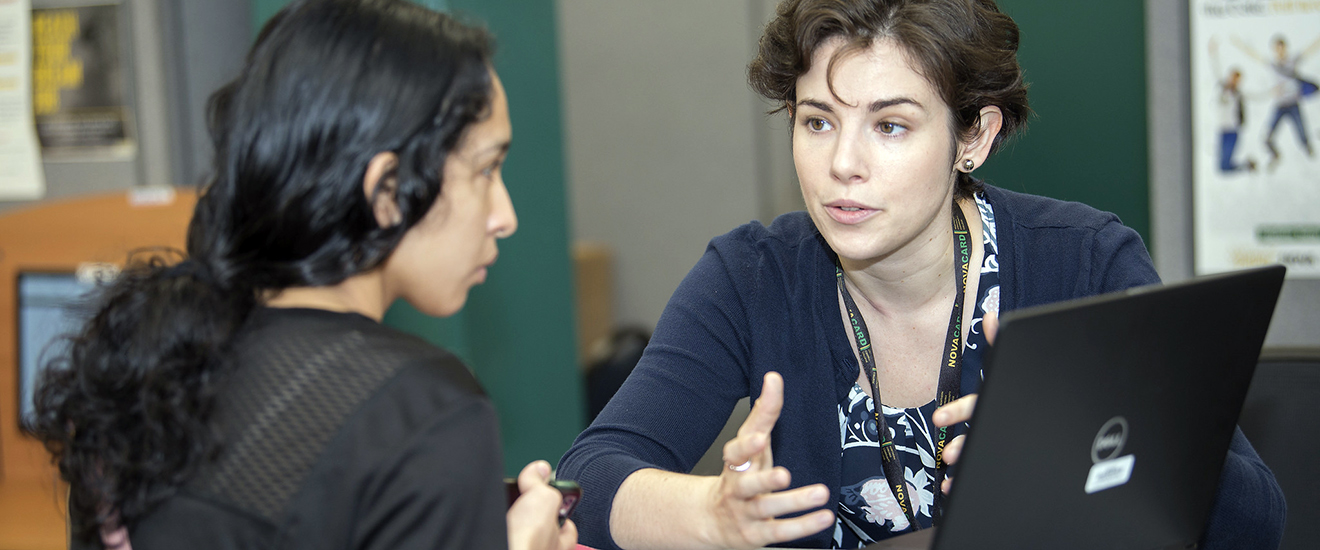Our Guiding Principles
In alignment with NOVA's mission, the Office of the Ombuds strives to provide an accessible College resource that empowers people to proactively address their concerns and conflicts in a positive, constructive way to maintain a climate for work and learning based on respect and fairness.
The Ombuds Office has adopted, and all Ombuds in the Office are required to adhere to the Code of Ethics and Standards of Practice of the International Ombuds Association ("IOA"). These core values are essential to the work of the Office of the Ombuds and the fundamental principles of independence, impartiality, informality and confidentiality that are essential to effective organizational ombuds work.
Accordingly, the Office of the Ombuds functions with:
Independence
The Office of the Ombuds is independent in structure, function, appearance and decision-making and operates without interference or direction from the College's administration. In addition, the Office of the Ombuds is not affiliated with any compliance function, and any guidance provided is not binding. The Office of the Ombuds has two Ombudspersons who are full-time employees of the College.
Moreover, the College will not retaliate against the Ombudsperson for performing the duties of an Ombuds within the accepted parameters of the International Ombuds Association Code of Ethics, Standards of Practice or other accepted business practices to the extent these are consistent with College/VCCS/DHRM policies and the Ombudsperson's position description.
Each Ombudsperson will be a member of the International Ombuds Association during their employment in the role. They will be thoroughly familiar with the IOA Code of Ethics and Standards of Practice, as well as sound principles of visitor advisement and individual and organizational conflict resolution.
Neutrality and Impartiality
The Ombudsperson is a designated neutral party who collaborates impartially with visitors and has no personal stake in the outcome of any dispute. The Ombudsperson represents the College's commitment to fairness and functions to help individuals understand each other and seek mutually agreeable solutions. As such, the Ombudsperson does not take sides and does not judge, discipline or reward anyone. The Ombudsperson does not impose any specific solution or assume responsibility for resolving concerns directly but rather offers potential solutions and resources in an informal way to help achieve resolution. To avoid a potential conflict of interest, the Ombudsperson will not serve as a voting member within the College community.
Confidentiality
The Office of the Ombuds is the most confidential resource for students and employees at NOVA, but there are specific exceptions, which include the threat of imminent harm to self or others and abuse or neglect of a minor. The Ombudsperson is not designated as a "Responsible Employee" as defined in Va Code § 23.1-806, nor as defined in the College's Sexual Misconduct policy, and does not have authority to act or redress allegations of sexual violence nor a duty to report such to the Title IX Coordinator.
Furthermore, the Ombudsperson is not designated as a Campus Security Authority for purposes of reporting requirements under the Clery Act. Confiding such issues to the Ombudsperson does not constitute formal or official notice to the College and will not necessarily trigger any additional action. However, confidentiality rests with the Office of the Ombuds. It may be waived at its sole discretion should it be deemed necessary under this Charter or applicable law and for Clery Act compliance.
The privacy of those who use the Office of the Ombuds is of the utmost importance to the Ombudsperson – including the person's identities, the concerns they raise and the content of their communications. These details will not be disclosed without the person's permission unless an exception for mandatory reporting purposes is applicable. The Office of the Ombuds is a purely voluntary resource and is not required. As such, those who do utilize the Office of the Ombuds will be understood to have agreed to the terms, conditions and principles upon which the Office of the Ombuds is established and will not call on the Ombudsperson to testify or produce documents relating to their confidential communications in any legal, administrative or other proceedings, unless expressly ordered by an appropriate judicial authority or otherwise required by law.
The Ombudsperson may disclose confidential information only with a visitor's express permission as part of a plan to help informally resolve the issue or concern. However, the person using the service cannot compel the Ombudsperson to participate in any process, informal or formal. The Office of the Ombuds holds the right to preserve confidentiality and cannot be waived by others.
Informality
Visitors may be referred to the Office of the Ombuds but are not required to make use of the services. Communications with the Ombudsperson are voluntary and off the record. They are not a part of, nor a substitute for, a formal investigation or adjudication afforded under the NOVA, VCCS or DHRM policies. The Ombudsperson cannot intervene formally in any situation, impose a specific outcome, or approach, create or implement any policies or procedures for the College. The Ombudsperson is an informal channel and not appropriate for putting the College on official notice about any matter. The visitor retains control of both the problem and the solution.
